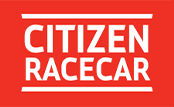While more companies and organizations are starting to see the potential power of a branded podcast series, these projects very often do not succeed. They are launched with great fanfare, but then fail to find a real audience and are soon abandoned. Frequently, this is because of a single, crucial question left unasked at the beginning of the project. That all-important question is this:
“How do we make this good?”
This may seem childishly simple and uncomfortably subjective – who am I to say what someone else will think is good? – but for a podcast series, the meaning of “good” is clear, specific, and measurable. A good podcast is one that people want to listen to. Far too often, companies producing a branded podcast series fail to hit this mark because they pay a lot of attention to themselves and surprisingly little attention to their audience.
Here’s how it usually goes: Someone in the organization notices the brand-building and engagement power that a podcast series could have, and convinces the team to take a stab at it. They secure a budget and a deadline, and someone nominates themselves to be the host. Equipment is purchased, and recordings are conducted. These are almost always interviews, often with fellow staff, board members, vendors, or maybe customers. They are lightly edited, a title is chosen, a logo ginned up, and then the series is launched on the company’s social media feeds and in an eBlast.
The first episode has a listenership in the hundreds – all of which are the organization’s staff, board, partners, and vendors. By episode three, that listenership is down to a few dozen stalwarts, mostly the guest’s immediate circle and some vendors who are hoping their loyalty will help them get a new contract. By episode six, the listenership is down to just the production staff and the Marketing Department Intern’s roommate. There is no episode eight.
And then the decision is made: “We did everything right! We bought a good microphone. We had our best partners as guests. We formatted the logo properly. We published to Spotify… and no one listened. Clearly, podcasting is not for us.” And an organization that could have benefited tremendously from a good podcast gives up on the medium entirely and forever.
So where did they go wrong? Throughout that process, they asked questions that covered ground from logistics to finance to marketing, but they never considered the desires of their audience or the creative questions that would have helped them fulfill those desires. To put it another way, they spent a lot of time considering how to make the podcast easy – how the workflow should be structured, who should be doing the work, and so forth – but almost no time considering how to make it good.
At the beginning of a podcasting project, consider this: a good podcast, like any good piece of media, is all of these four things:
- Clear: you, the listener, understand what is being said and why and how you are supposed to feel about it. Few things are more off-putting to an audience than jargon they don’t understand, dialogue they can’t follow, or uncertainty about whether something was meant to be serious or funny.
- Informative: it teaches you something that you are interested to know. This might be what the latest trends are in the real estate market or who won the war of 1812 or who committed the murder in the library; but whatever it is, you are leaving every episode with information you did not possess when you began it.
- Entertaining: it feels like time well spent. You are listening to people you want to listen to, who are saying interesting things in a pleasant sonic environment.
- Surprising: it presents things in a way you haven’t heard before. Shows that are closely like other shows are forgettable and soon forgotten.
None of these are easy to achieve, but the way to do so is clear: put yourself into the ears and minds of your show’s intended audience, and put their wants and needs first. Your podcast cannot just be a long-form advertisement for your company or a description of your work. Brand messaging is important, but it has to be expressed in the context of a stream of information that is useful and engaging. The core question has to be “who do we want to talk to, and what would they be interested to hear?”
These are questions that have to be answered very specifically. “We want it to appeal to everyone” is a statement with no practical meaning. And, honestly, you don’t even mean it when you say it. Not everyone buys your product. Not everyone needs your services. Not everyone supports your cause. Identify your true target audience, think about who they are and what kinds of information they like to consume, and come up with a plan for presenting that information in a way that they haven’t heard before.
If you do that work of initial creative conception well, the answers to all the other production questions will flow much more easily: now we know what the format is, because it’s the best way we can think of to present that information. Likewise the guests: who are the world leaders in that subject? Let’s book them! Do we have the creative and technical capacity to make this show as good as it needs to be? Yes? Awesome! No? Then hire someone who does! How do we promote it? Find the places that audience spends time – physically or virtually – and advertise there! One by one, all those dozens of questions that seemed disconnected and daunting fall into place, because they are contributing elements to your overall plan.
And now, instead of a podcast that’s little more than an audio newsletter of what’s happening at your firm, we have a periodical piece of media that is indispensable to people in your field – they can’t wait to tune in every week to be informed, inspired, and entertained. While spending all that time with you and your brand, what possible conclusion could they draw except that your product is the best, your services are unmatched, and your cause is the one they should support?
Now that’s a good podcast.
(David Hoffman is the Founder & Principal of CitizenRacecar)





